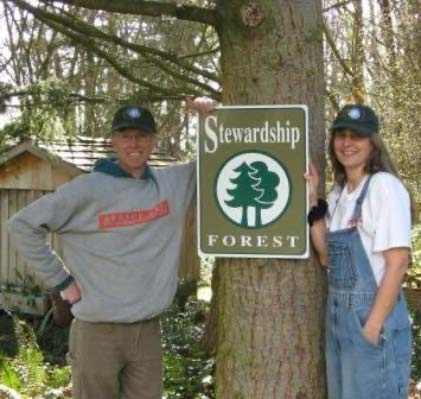Current use taxation resources
State and County Laws and Policy for Current Use Taxation Programs
The following provides more information on King County and Washington State policies and laws that govern the administration of Current Use Taxation programs.
- Revised Code of Washington (RCW)
Chapters 84.34 and 84.33 of the RCW detail the definitions, policies and procedures for the administration of current use assessment in Washington State. Please refer to Chapter 84.34 for PBRS and Farm and Agricultural Land and Chapter 84.33 for Forestland. - Washington State Open Space Taxation Act (OSTA)
The OSTA, enacted in 1970, allows property owners to have their eligible open space and farmland valued based on their current use rather than their highest and best use. This Washington State Department of Revenue publication and additional informational page provide a summary of policies, procedures and requirements of the Open Space and Farm and Agricultural Land programs. - Washington Administrative Code (WAC)
Chapter 458.30 of the WAC offers further guidance and clarity to the RCW and ‘’provides definitions for the terms used in conjunction with land classified under the Open Space Taxation Act, codified as chapter 84.34’’ of the RCW. - King County Code, Chapter 20.36
The intent of Chapter 20.36 of the King County Code “is to implement Revised Code of Washington (RCW) Chapter 84.34, by establishing King County procedures, rules and fees for the consideration of applications for public benefit rating system assessed valuation on ‘open space land’ and for current use assessment on ‘farm and agricultural land’ as those lands are defined in RCW 84.34.020.”
Farm Information
The following provides more information on resources available to county residents conducting farm and agricultural activities on their property:
- Livestock Program supports the raising and keeping of livestock in the county in an environmentally sound manner. This entails providing technical assistance in compliance with the county’s Livestock Management Ordinance (LMO): manure management, stream and wetland setbacks, livestock densities, and clean water diversion. The Livestock Program includes cost-share assistance for implementing best management practices (BMPs) with a farm management plan from the King Conservation District (KCD). The list of BMPs includes, but is not limited to: heavy use area (mud prevention), manure storage, clean water diversion, stream and wetland buffer fencing, pasture renovation and roof runoff management.
- Farmland Preservation Program (FPP) preserves rapidly diminishing agricultural land by purchasing farmland easements. The purpose is to permanently protect the land, its soils, and agricultural use for current and future generations through the purchase of development rights. through this program’s efforts.
- King Conservation District (KCD) is a non-regulatory agency that provides private landowners with financial assistance, technical support and information. The focus of the support includes balanced water usage, water quality protection, habitat enhancement, farm management / conservation planning, soil health, slope stability, native plant, manure management, volunteer opportunities, stream restoration/enhancement assistance and many other natural resource topics. KCD staff also produce farm management plans , which are required to receive credit for the PBRS farm and agricultural conservation land category.
Forest Information

The following provides more information on resources available to county residents interested in forest resource management and stewardship on their property:
- King County Forestry Program focuses on the retention of forestland for its environmental, social, and economic benefits. The Program provides education, technical assistance, and economic incentives aimed at retaining the forest resources of King County. County forestry staff is responsible for approving forest stewardship plans for PBRS enrollees.
- Forest Stewardship Coached Planning is a six-to-nine week course offered by the Washington State University Extension, in cooperation with King County forestry staff. The course is designed to assist private forest landowners in writing their forest stewardship plans. Classes are usually held each year both online and at select locations in the county and provide landowners personalized forest planning instruction from natural resource professionals.
- Forestry Consultant Directory and Washington State Society of American Foresters are searchable directories of forestry consultants, based on location, available for hire for technical assistance and producing forest stewardship plans.
- Learn more about what King County is doing to conserve forest resources.
Noxious Weeds
The following provides more information on resources available to county residents interested in controlling noxious weeds on their property:
- Noxious Weed Control Program works throughout King County to prevent and reduce the economic, environmental and social impacts of noxious weeds in King County. Their focus is to provide education and technical assistance to landowners and public agencies to help everyone find the best control options for noxious weeds on each site and to reduce the overall impact of noxious weeds throughout the county.
- Healthy Lands Project (HELP) provides invasive weed control and stewardship assistance to keep open space healthy for people and the environment. HeLP controls invasive weeds on both private and public lands in cities and unincorporated areas throughout King County, primarily on recently protected conservation lands and open space.
Transfer of Development Rights (TDR)
- TDR is a market-driven approach to preserve land and steer development away from rural and resource lands into King County’s urban areas. The purpose of TDR is to encourage builders to increase development capacity in urban area projects by purchasing development rights from farm, forest, and open space landowners.
 Translate
Translate